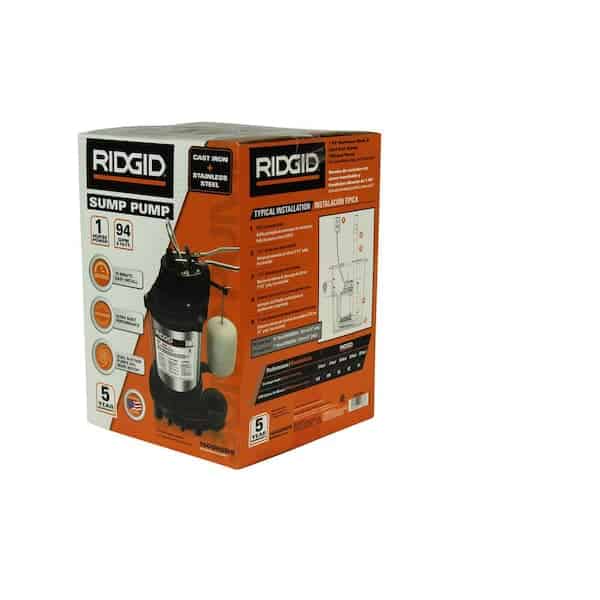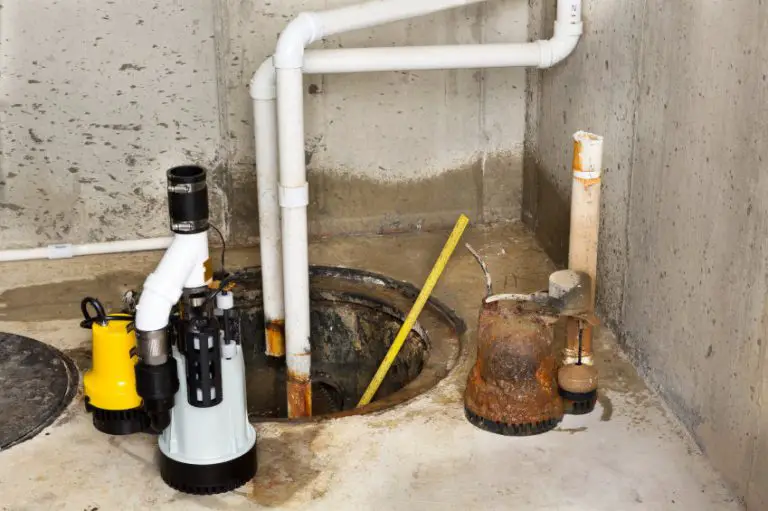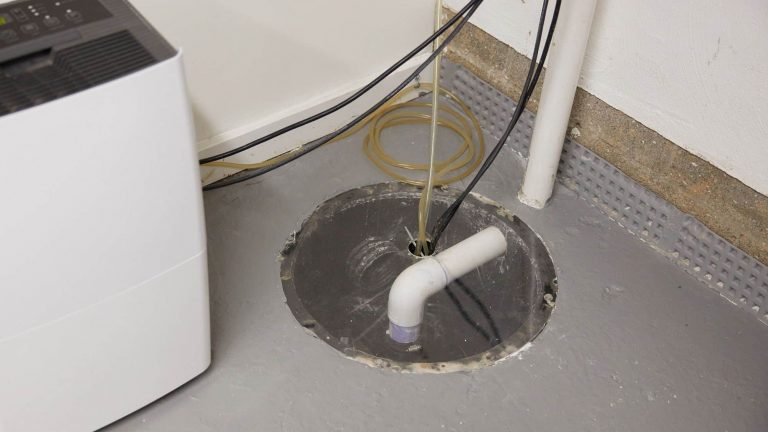Do You Really Need a 1 Hp Sump Pump?
A sump pump is a device that is used to remove water from an area. This can be done by either draining the water away or by pumps that force the water up and out of the area.
Sump pumps are commonly used in homes to remove water from basements or crawlspaces. They are also used in commercial buildings, such as office towers, to remove water from parking garages.
There are many different sizes and types of sump pumps available on the market today. The size of the pump you need will depend on the amount of water you need to remove and the conditions of the area you are removing it from.
For example, if you have a basement that is prone to flooding, you will need a larger pump than someone who only needs to remove a small amount of water from their crawlspace. If you live in an area with a lot of rain or flooding, then a 1 hp sump pump is a must-have.
This type of pump can move up to 55 gallons of water per minute, which is ideal for quickly clearing out your basement or crawl space. And, since they’re built to last, you won’t have to worry about replacing your pump anytime soon.
However, if you don’t live in an area that’s prone to flooding, then you might not need a 1 hp sump pump. A less powerful pump will do the job just fine and will cost less to operate. So, it’s really up to you and your specific needs when deciding whether or not a 1 hp sump pump is right for you.
6 Things Sump Pump Owners NEED to Know
Can a Sump Pump Be Too Powerful
A sump pump is a key component in keeping your basement dry. Sump pumps are designed to remove water that has accumulated in a sump basin, typically located in the basement of a home.
The water is then pumped out of the basin and away from the home. However, can a sump pump be too powerful? Yes, a sump pump can be too powerful.
If the discharge pipe that carries water away from the sump pump is not large enough, or if there is any blockage in the pipe, the water will back up and flood your basement. Additionally, if the power goes out and your backup battery-operated sump pump does not have enough power to clear all of the water, you could again be at risk for flooding.
To avoid these problems, it is important to have your sump pump regularly inspected by a professional to ensure that it is working properly and that there are no clogs or blockages in the discharge pipe. You should also make sure that your backup battery-operated sump pump has enough power to clear all of the water in case of an emergency.
1/6 Hp Vs 1/4 Hp Pump
The debate between 1/6th hp and 1/4th hp motors is one that has been around for a while. There are pros and cons to each side, but ultimately it comes down to personal preference.
Here is a breakdown of the two types of motors: 1/6th Horsepower: Pros: -Generally more affordable than 1/4 hp options -Lighter weight makes them easier to transport -Ideal for smaller projects or those just getting started in woodworking Cons: – Limited power can hold back some projects – Not as durable as 1/4 hp options 1/4 Horsepower: Pros: – More powerful than 1/6th hp options, allowing you to take on bigger projects – More durable, so they will last longer over time – Still relatively affordable compared to other motor types Cons: – Heavier weight can make them more difficult to transport Ultimately, the decision between a 1/6th hp and 1/4hp motor comes down to what you need it for. If you are just getting started in woodworking or only plan on working on small projects, then a 1/6hp motor should suffice. However, if you want the option to tackle bigger jobs or need a more durable motor, then go with a 1 / 4hp option.
1/2 Hp Sump Pump
If you have a basement, then you know the importance of having a reliable sump pump. A sump pump is designed to remove water that has accumulated in a sump pit.
This can be caused by heavy rains or flooding, and if left unchecked, can lead to serious damage to your home. Most homes come equipped with a 1/2 hp sump pump, but there are also larger models available for homes that experience more severe weather conditions.
If you live in an area that is prone to flooding, it is important to make sure that your sump pump is up to the task of keeping your basement dry. Here are some things to keep in mind when choosing a sump pump: 1) Make sure that the model you choose is rated for the amount of water that you expect it to handle.
If you live in an area with high rainfall amounts, you will need a stronger pump than someone who lives in an area with light rainfalls. 2) Consider the warranty on the pump before making your purchase. Some manufacturers offer longer warranties than others, so this may be something worth taking into account when making your decision.
Lowe’S Sump Pump
A sump pump is a device that is installed in your basement or crawlspace to remove water that has accumulated there. This water can come from many sources, including rainfall, melting snow, and leaks in your foundation.
A sump pump is typically used in conjunction with a drainage system to keep your basement or crawlspace dry. Lowe’s offers a variety of sump pumps to fit your needs.
We carry both pedestal and submersible models from some of the most trusted brands like Zoeller, Wayne, and Basement Watchdog. We also offer battery backup systems to keep your pump running even if the power goes out.
If you’re not sure which model is right for you, our knowledgeable associates can help you choose the best option for your home. Come into Lowe’s today and let us help you take care of all your sump pump needs!
Best Sump Pump
A sump pump is an important piece of equipment that every homeowner should have. It is installed in the lowest part of your home, typically in the basement, and its job is to pump water out of your home and away from the foundation to prevent flooding.
There are two types of sump pumps: submersible and pedestal. Submersible pumps are submerged in the water that needs to be pumped out, while pedestal pumps are not.
Both types of pumps are effective, but submersible pumps tend to be more popular because they are less likely to get clogged with debris. When choosing a sump pump, it is important to select one that is powerful enough to handle the amount of water you need to be pumped out.
The size of your home, as well as the rainfall in your area, will impact this decision. You also want to make sure that your pump has a backup power source in case of a power outage.
Once you have chosen the right sump pump for your home, it is important to have it installed by a professional. This will ensure that it works properly and lasts for many years.
1/4 Hp Vs 1/3 Hp Sump Pump
If you’re in the market for a sump pump, you may be wondering what the difference is between a 1/4 hp and 1/3 hp sump pump. Here’s a breakdown of the key differences to help you make the best decision for your needs.
A 1/4 hp sump pump can typically move up to 3,000 gallons of water per hour, whereas a 1/3 hp sump pump can move up to 4,200 gallons of water per hour. So if you have a larger basement or are dealing with more water than usual, a 1/3 hp pump may be a better choice.
Another key difference is that a 1/4 hp pump will typically have a max head height (the height at which it can no longer effectively pump water) of around 25 feet, while a 1/3 hp pump will have a max head height of around 35 feet. So if you need to Pump Water higher than 25 feet, then again, you’ll want to go with the 1/3hp option.
Submersible Sump Pump
A sump pump is a device that is installed in the basement of a home. Its purpose is to remove water that has accumulated in the sump pit, which is usually located in the lowest part of the basement.
Sump pumps are used to prevent basements from flooding. There are two types of sump pumps: submersible and pedestal.
Submersible pumps are designed to be placed entirely inside the sump pit, while pedestal pumps are only partly submerged. Both types of pumps work by using an impeller to force water out of the pit and away from the foundation of the house.
Sump pumps require electricity to operate, so during a power outage, they will not be able to function. A backup battery or generator can be used to keep the pump running during an outage.
Regular maintenance is important for keeping a sump pump in good working order. The Pit should be cleaned out every few months, and debris should be removed from around the pump so that it can continue to operate properly.
Sump Pump Size Calculator
A sump pump size calculator can be a helpful tool when you are trying to determine the size of sump pump that you need. There are a few different factors that you will need to take into account when using a sump pump size calculator.
The first factor is the amount of water that you want to be able to move with your sump pump. This will help determine the flow rate that you need for your sump pump.
The second factor is the height of the discharge pipe. This will help determine how much power you need for your sump pump.
The third factor is the diameter of the discharge pipe. This will also help determine how much power you need for your sump pump.
Once you have determined the flow rate and height of discharge, you can begin to calculate the size of sump pump that you need based on these two factors. To do this, simply multiply the flow rate by 0.082 (this number comes from multiplying 2 minutes by 60 seconds).
Then, divide this number by 1728 (this number comes from cubic inches in a gallon). This will give you an approximate idea of the gallons per minute that your sump pump needs to be able to handle in order to function properly according to its specifications .

Credit: www.harborfreight.com
Do I Need a 1/2 Hp Sump Pump?
If your home is prone to flooding or you live in an area with a high water table, you may need a sump pump. Sump pumps are used to remove water that has accumulated in a sump basin, typically located in the basement of a home.
A 1/2 HP sump pump can move up to 5600 gallons per hour and is powerful enough to handle most residential applications. If you have a larger home or property, or if you live in an area with especially heavy rains, you may need a higher-horsepower sump pump.
How Many Horsepower Should My Sump Pump Be?
A sump pump is a vital component of any home with a basement. Its purpose is to remove water that has accumulated in the sump basin, which is usually located in the lowest part of the basement.
Sump pumps come in a variety of different sizes and horsepower ratings. So, how do you know how much horsepower your sump pump should have? The size of your sump pit will be the primary determining factor in how much horsepower your sump pump needs.
A general rule of thumb is that for every 10 gallons of water that needs to be removed per minute, you will need 1 horsepower from your sump pump. So, if your pit can hold 100 gallons of water and you need to remove 10 gallons per minute, you will need a 10 horsepower sump pump.
Another factor to consider when choosing a sump pump is the height at which it needs to lift the water. Every foot that the water must be lifted increases the amount of power required by 0.5 horsepower.
So, if your pit is 4 feet deep and you need to remove 10 gallons per minute, you will need a 12 horsepower sump pump (10 + (4 x 0.5)). Finally, consider what type of soil you have in your basement or crawlspace as this can also impact how much power your sump pump needs. If you have sandy soil, less power will be required than if you have clay soil as Sandy soil drains better than clay soil.
How Far Can a 1 Hp Sump Pump Push Water?
Assuming you are talking about a standard 1 HP submersible sump pump, it can push water up to around 25 feet.
How Do I Know What Size Sump Pump I Need?
A sump pump is a device that is used to remove water from an area. Sump pumps are commonly used in basements and crawlspaces to remove water that has accumulated in these areas.
The size of the sump pump you need will depend on the amount of water you need to remove and the rate at which you need to remove it. The following table can be used as a guide to determine the appropriate size sump pump for your needs. Size of Pump Gallons per Minute (GPM) Pounds per Square Inch (PSI) 1/6 HP 3-5 GPM 40-60 PSI 1/4 HP 5-7 GPM 60-70 PSI
Conclusion
No, you don’t need a 1 hp sump pump. A sump pump’s job is to move water from one place to another, and the size of the pump is determined by the volume of water it can move.
A 1 hp sump pump can move about 4500 gallons per hour, which is more than enough for most homes. The only time you might need a 1 hp sump pump is if you have a very large home with a lot of basement flooding.




